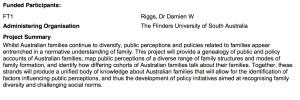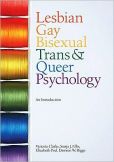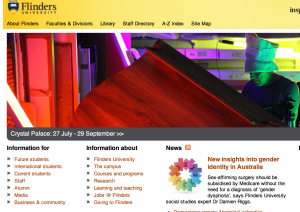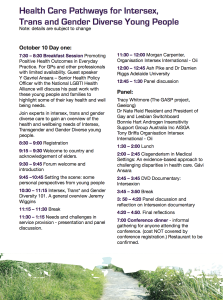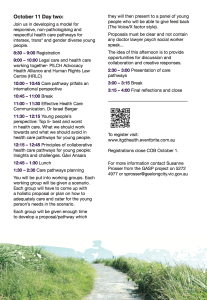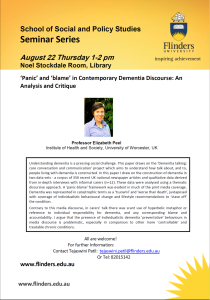This is a wonderful blog post by Georgia Knowles discussing a paper that Clemence Due and I wrote a few years ago. So nice to see our work getting out there and being discussed 🙂
Future Fellowship success
Wonderful news today – the Australian Research Council announced outcomes for Future Fellowships, and i was fortunate enough to be one of the people funded. I’m looking forward to having the opportunity to focus on Australian family diversity for the next 5 years 🙂
Filed under Uncategorized
APS Webinar on ‘Gender Dysphoria’
I was really pleased to be invited by the Australian Psychological Society to give a webinar to APS members and other interested people on the topic of the DSM5 diagnosis of ‘gender dysphoria’. The webinar will aim to provide an overview of the contentious nature of this diagnosis as well as to more broadly discuss the needs of gender variant clients when engaging with mental health professionals. Registration is open via the APS website.
Filed under Uncategorized
New special issue edited with Lisa Jean Moore
International Journal of Mixed Methods Approaches
It was an absolute privilege and joy to edit this special issue with Lisa Jean Moore, someone whose work i have long enjoyed, and who is as lovely in person as she is in her writing. We were fortunate to assemble a wonderful group of academics writing across a diverse range of topics on gender and sexuality using mixed methods approaches. The issue can be viewed here.
Filed under Uncategorized
We won!
Very exciting to announce that Victoria Clarke, Sonja Ellis, Elizabeth Peel and I won the British Psychological Society book prize for best textbook. Full details here. The book is available here. A number of sources have reported on the announcement, including news medical and University of Worcester.
Filed under Uncategorized
Feature on Workplace Gender Equality Agency website
The WGEA recently approached me for a piece they were putting together on men negotiating flexible work arrangements. Is great to see some focus on this topic, especially on the back of recent ABS stats on the rise of stay-at-home fathers. Of course it is always important to caution against an over emphasis on this type of social change. Women still do the majority of carework (in all forms), and the penalties for this – even in the presumed-to-be safety of academia – are still significant.
Filed under Uncategorized
Flinders reporting of Gender Identity Australia Report
It has been wonderful that Flinders has been so supportive, both in terms of funding this research and disseminating the findings. A story of the report is featured on the front page today as well as appearing in the local independent news and last week in the Star Observer. Contributing to change by small steps 😀
Filed under Uncategorized
Gender Identity Australia Report
It is very exciting to finally make available the Gender Identity Australia Report, which documents findings from the two surveys undertaken by myself and Dr Clemence Due in 2012 and 2013. The executive summary is included below, but please read the full report via the link above for detailed findings, and circulate a link to this page widely.
Executive Summary
The two surveys reported here, undertaken in 2012 and 2013, highlight both diversity and homogeneity. With regard to diversity, the report celebrates the many differing ways Australian people whose gender identity differs from that expected of their natally assigned sex experience their gender. In so doing, it encourages acknowledgment of this diversity, and recommends that service provision moves towards a model that recognises diversity as its starting place.
With regard to homogeneity, what tended to group our respondents together were the effects of cisgenderism. Specifically, we use the two categories ‘male assigned at birth’ (MAAB) and ‘female assigned at birth’ (FAAB) in many sections of this report to highlight that what often differentiated people’s experiences were health care professionals’ apparent responses to participants’ natally assigned sex. In other words, the diversity between respondents highlighted above tended to disappear when it came to accounting for experiences with healthcare professionals who, it would appear, at times were responding to a presumed distinction between people FAAB but who now identify with a different gender identity, and people MAAB but who now identify with a different gender identity. What seemed to determine experiences with healthcare professionals was in many instances assigned sex, and this, we suggest, is a product of cisgenderism (a claim we expand on at length in the overview).
Of the significant differences we found when comparing the two surveys, people MAAB were older, were more likely to have had surgery, and were more likely to have had more positive experiences with mental health professionals. In comparison, people FAAB reported slightly higher levels of positive mental health than did people MAAB. In general, we found that for those people who desired sex-affirming surgery, having had surgery was related to higher levels of positive mental health. Those who were in relationships, were parents, and/or felt more connected to the general community all reported higher levels of positive mental health.
The report also outlines both negative and positive experiences amongst respondents in relation to mental and physical health professionals, and as such highlights both what works well, and what requires improvement.
Importantly, the findings reported here echo previous similar surveys from the UK, Canada, the US, and of course the first Australian study documented in the TranZnation Report. Together these findings highlight not only the multiple forms of marginalisation experienced (and the subsequent need for better service provision), but also the strengths and resiliencies shown. We can only imagine how improved outcomes would be if cisgenderism both within healthcare and in the broader community did not occur.
Filed under Uncategorized
Visiting Research Fellow
It is lovely to have my friend and colleague Prof Liz Peel visiting from the University of Worcester. We are working on a book project together and she is giving a seminar at work – do come along if you can.
We are also up for a book prize – fingers crossed!
Filed under Uncategorized

